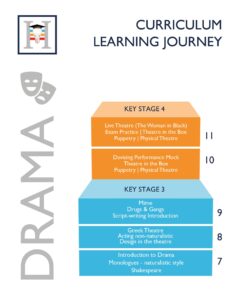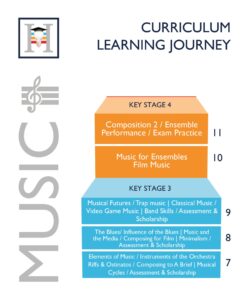Drama
All pupils should be enabled to participate in and gain knowledge, skills and understanding associated with the artistic practice of drama. Pupils should be able to adopt, create and sustain a range of roles, responding appropriately to others in role. They should have opportunities to improvise, devise and script drama for one another and a range of audiences, as well as to rehearse, refine, share and respond thoughtfully to drama and theatre performances.
Aims
- Role-play and other drama techniques can help pupils to identify with and explore characters. In these ways, they extend their understanding of what they read and have opportunities to try out the language they have listened to.
- Drama and role-play can contribute to the quality of pupils’ writing by providing opportunities for pupils to develop and order their ideas through playing roles and improvising scenes in various settings.
- In years 3 and 4, pupils should become more familiar with and confident in using language in a greater variety of situations, for a variety of audiences and purposes, including through drama, formal presentations and debate.
- Reading, re-reading, and rehearsing poems and plays for presentation and performance give pupils opportunities to discuss language, including vocabulary, extending their interest in the meaning and origin of words. Pupils should be encouraged to use drama approaches to understand how to perform plays and poems to support their understanding of the meaning. These activities also provide them with an incentive to find out what expression is required, so feeding into comprehension.
Music
Music is a universal language that embodies one of the highest forms of creativity. A high- quality music education should engage and inspire pupils to develop a love of music and their talent as musicians, and so increase their self-confidence, creativity and sense of achievement. As pupils progress, they should develop a critical engagement with music, allowing them to compose, and to listen with discrimination to the best in the musical canon.
Aims
The national curriculum for music aims to ensure that all pupils:
perform, listen to, review and evaluate music across a range of historical periods, genres, styles and traditions, including the works of the great composers and musicians
learn to sing and to use their voices, to create and compose music on their own and with others, have the opportunity to learn a musical instrument, use technology appropriately and have the opportunity to progress to the next level of musical excellence
understand and explore how music is created, produced and communicated, including through the inter-related dimensions: pitch, duration, dynamics, tempo, timbre, texture, structure and appropriate musical notations.



